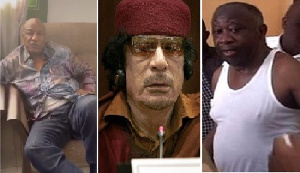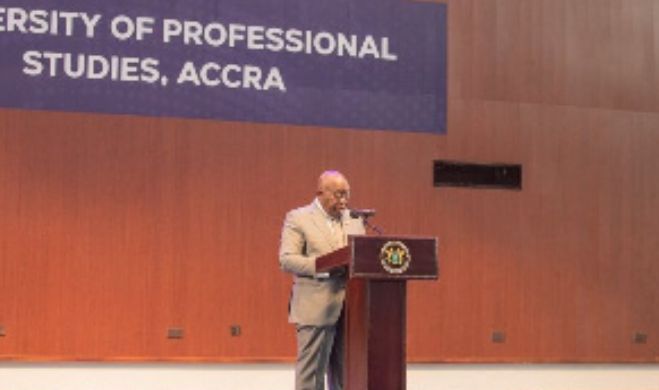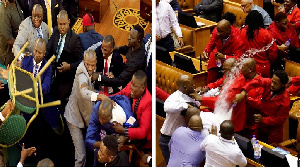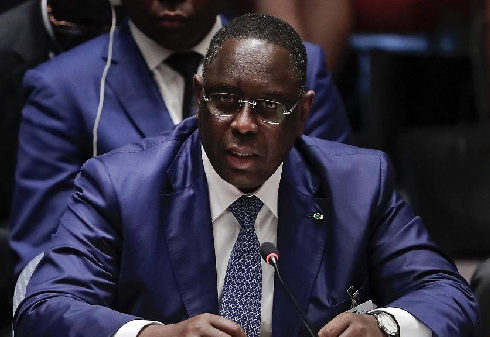Ghana’s biggest YouTuber helps expose racist Chinese video maker exploiting African children for money
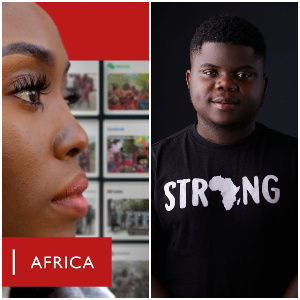
An investigative work by a team for BBC Africa Eye Documentary has uncovered an uncanny, evasive, yet well-plotted business of a Chinese man who has been using poverty-stricken children in far-away parts of Malawi, in a profitable video industry back in his home country, China.
The man, known as Susu, real name Lu Ke, (the Chinese variation for the word that means ‘uncle’), was traced to a village in Malawi called Kamwendo, where he executed his inhumane, exploitative work that is regarded one of the worst forms of racism, using children as his objects.
Working under the pretext of teaching the children in those villages the Chinese language, and with many of the unsuspecting parents under the huge impression that this man was going to help make their lives better, Susu’s industry flourished for many years.
In those years, he raked in many millions, even as his videos, and others like his from other such ‘filmmakers,’ flooded mainstream Chinese social media platforms; a place where many of such skewed Chinese have grown to love their contents.
But it took the voice and contributions of Ghana’s biggest YouTuber, Wode Maya, to help get to the bottom of one of them.
The Ghanaian, who lived and schooled in China for many years, had cause to use his platform, in February 2020, to share his disgust about one of such videos when he first saw it.
In the video, like many others scattered around social media, African children, usually wearing traditional Chinese dresses, are seen chanting racist slogans in the Chinese language.
It would emerge in the investigative documentary that for most of these children, they do not even understand the things they are taught to say in the videos.
The videos have since sparked a wave of anger on social media and on February 15, 2020, Wode Maya, posted a video to speak against this unbelievable extent of racism.
He also spoke about the regrettable knack that the huge market of Chinese feeding off African children in such exploiting ways portends for the future of the relationships that exist between China and Africans as a whole.
“In the 21st century, people can do videos like this… (goes on to show a clip of the demeaning video where in the first few seconds, it shows a group of 18 children wearing red outfits, decorated with what appear to be white dragons. In the middle of the group, there is a blackboard with a phrase written in Chinese that children start chanting, repeating after the person who is filming the video: “I’m a black monster. I have a very low IQ!” Then, they all start dancing).
“I’ve been trying my best to stay away from this content – like talking about China and Africa because I feel like when we talk about this issue, Africa is not ready to bring measures to control or bring measures to resolve these kinds of issues that is happening in Africa.
“When you’re living in a continent where the leaders or the people in power don’t care about its people, people will always take advantage of you. I’ve been saying this over and over again… I did a video in China, saying that when Chinese people come to Africa, most of them don’t respect the rules and regulations because our people are always ready to take bribes so that they feel like, ‘oh when they do this, definitely, they’ll pay their way out,’ that’s why things like these keep on happening in Africa,” Wode Maya said in his video.
So, when the BBC Africa Eye decided to investigate this industry and uncover its rot, he became one of the first people that the team turned to for ideas.
As he explained to them, he would be happy if the perpetrator(s) is found and dealt with.
“When a friend sent me the video, I was heartbroken, I was very angry as an African but I speak and understand Chinese and I felt I was the right person to speak against it because I had the platform, just to show the world that these people are actually taking advantage of Africans living in Africa.
“We need to address these issues for the world to know that this is what is happening and it needs to change… I’d be happy to actually find that you guys found the person who did the video because I cannot go to that extreme but if you can do it, that would be amazing,” he told the BBC.
The documentary, titled ‘Racism For Sale,’ put together by #BBCAfricaEye and #BBCEyeInvestigations reporters, Runako Celina and Henry Mhango, was able to track this man, out of the many, presenting him with evidence that is enough to save him from any escapes from prosecution.
The video also achieves the aim of clamping down on the Chinese video-making industry that exploits vulnerable children across the continent, where most of it happened right under the noses of the locals, but hidden in plain sight.
Follow the full video below:
Source: www.ghanaweb.com



